John Howie, Babcock International’s Chief Corporate Affairs Officer, has set out how the company sees its future after several years of restructuring, disposals and renewed growth.
Previously Divisional Chief Executive for Marine & Technology, Howie now has responsibility for corporate strategy, international growth and government relations.
I sat down with John at DSEI to hear more about the direction the business is headed.
Howie told me that his role was created by chief executive David Lockwood to strengthen relations with government, bring together a previously siloed company, and drive strategy. “What we do is help join bits of the company together so the whole is greater than the sum of its parts,” he explained. “We’re also trying to increase the volume of international business we have. We’d like to get to a better balance of UK and international.”
Babcock’s focus overseas is on what Howie described as its “core target markets” of Canada, France, South Africa, Australia and New Zealand. “It’s always easier to build on something that’s already in existence,” he said, pointing to in-country teams with pipelines that need corporate backing to accelerate growth. The export prospects of Type 31 were a central example. Despite the difficulties of designing a frigate through the pandemic, Brexit and inflation, he noted that “before we’d even built the ship, we’d sold it to Poland and Indonesia, and we’re now talking to Sweden, Denmark, New Zealand, Chile and about 17 countries in total.”
Howie argued that the design choices behind Type 31 made it more attractive abroad. “You could have met the requirement with a ship the same size as Type 23, but you’re back into the same problems again. So we’ve gone much bigger, more space, more adaptive, and that means export markets find it easier to reconfigure.” He added that its modularity not only simplified export but also supported automation and robotics in UK production.
Asked about employment, he said the picture varies depending on the customer. “There is a mix of countries that would expect to build in the UK, others that might want UK block build or flat pack structures, and those that want to build it themselves, like Poland. I’m actually quite pleased how many people still look at UK build.”
On the future of naval support ships, he pointed back to the collaborative approach taken on the carrier programme. “My view on MRSS has always been that it lends itself to the same model. You need an assembly yard who can manage the customer, but you also need a network of yards that can contribute volume to get time down and cost base down.” Babcock, he stressed, has space at Rosyth and planning consent for further expansion, but the real challenge lies in workforce numbers.
The company is running its largest ever apprenticeship programme, investing in graduate schemes and reskilling initiatives. “One of the most successful things has been the production support operative programme, which we’ll now roll out across the country. It’s a great way of getting people back into the workforce, including many women moving into welding and other semi-skilled jobs.”
Looking ahead, Howie said Babcock has moved past its transformation phase and is now ranked around 70th in the FTSE 100. “That in itself is a really good indication for us that investors buy our growth story,” he said. The strategy now is to build on core strengths in nuclear and naval support, move further into land vehicles, and expand systems integration. “We will never be a technology business like Lockheed Martin or BAE, but what we offer customers is system integration. Everyone will talk to us because we’re not a natural competitor, and we can provide the best balance between capability and affordability.”
He described his vision as shifting Babcock from a UK company with international operations into an international defence business headquartered in the UK. “Babcock today is a UK business with international operations. The vision for Babcock is to be an international defence business headquartered in the UK, which isn’t the same. Philosophically, it’s quite different.”
Part of that will be closer work with SMEs, which he acknowledged are often wary of large primes. “We think if we can help SMEs scale up, productionise and get their products into bigger systems, that can help government directly and create growth.”
Reflecting on the company’s direction under Lockwood, Howie said the past five years had been the most enjoyable of his career. “Working with David has been fantastic because he’s full of ideas and lets us get on with stuff. He’s got a strong moral and ethical background, he won’t tell government lies, and he listens. That helped us rebuild relationships. It’s been fun.”


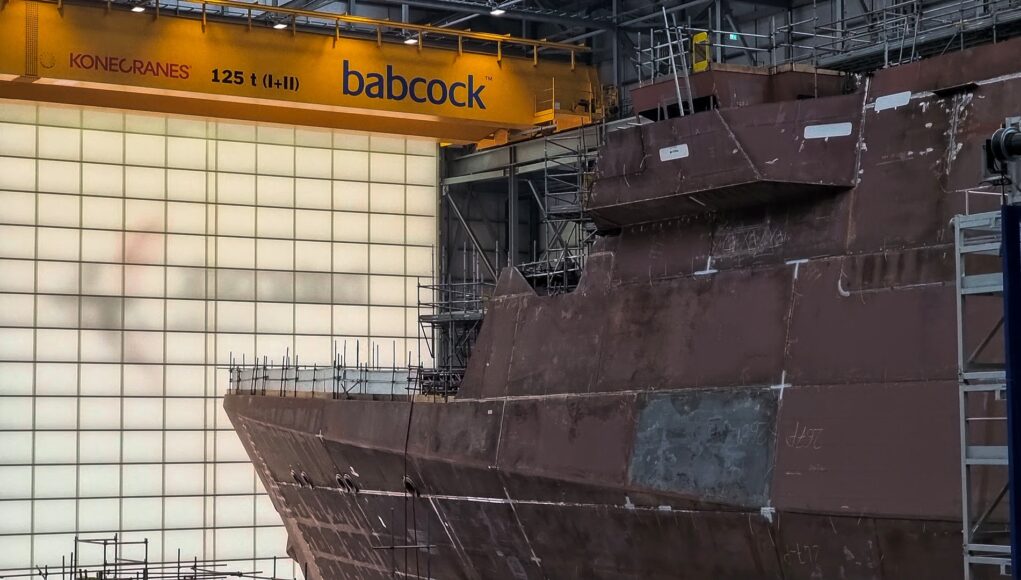
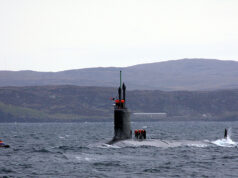

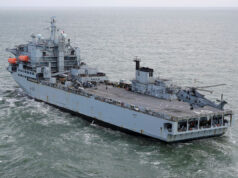
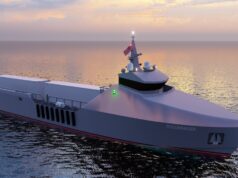
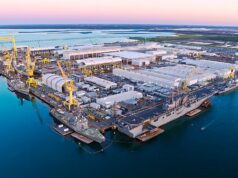
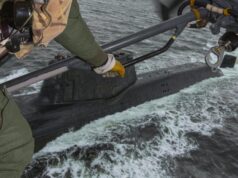

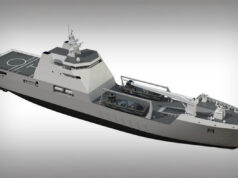

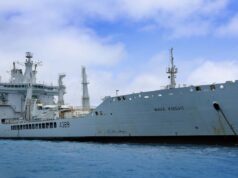

is this going forward as a back door to the removal of another British company,
stripped and abandoned. a foreign future . with British investment, and foreign profits.
or am I totally wrong. and it a great benefit to Britain and Babcock.
just a bit confused.???
Sadly I suspect only the future will reveal where this leads. Uk history isn’t exactly encouraging n the matter unless Govt sees a company as vital to Uk interests and warns off foreign interest as it did when Unilever was of interest to a US, ironically smaller predator. But equally the Dutch were very much against that too.